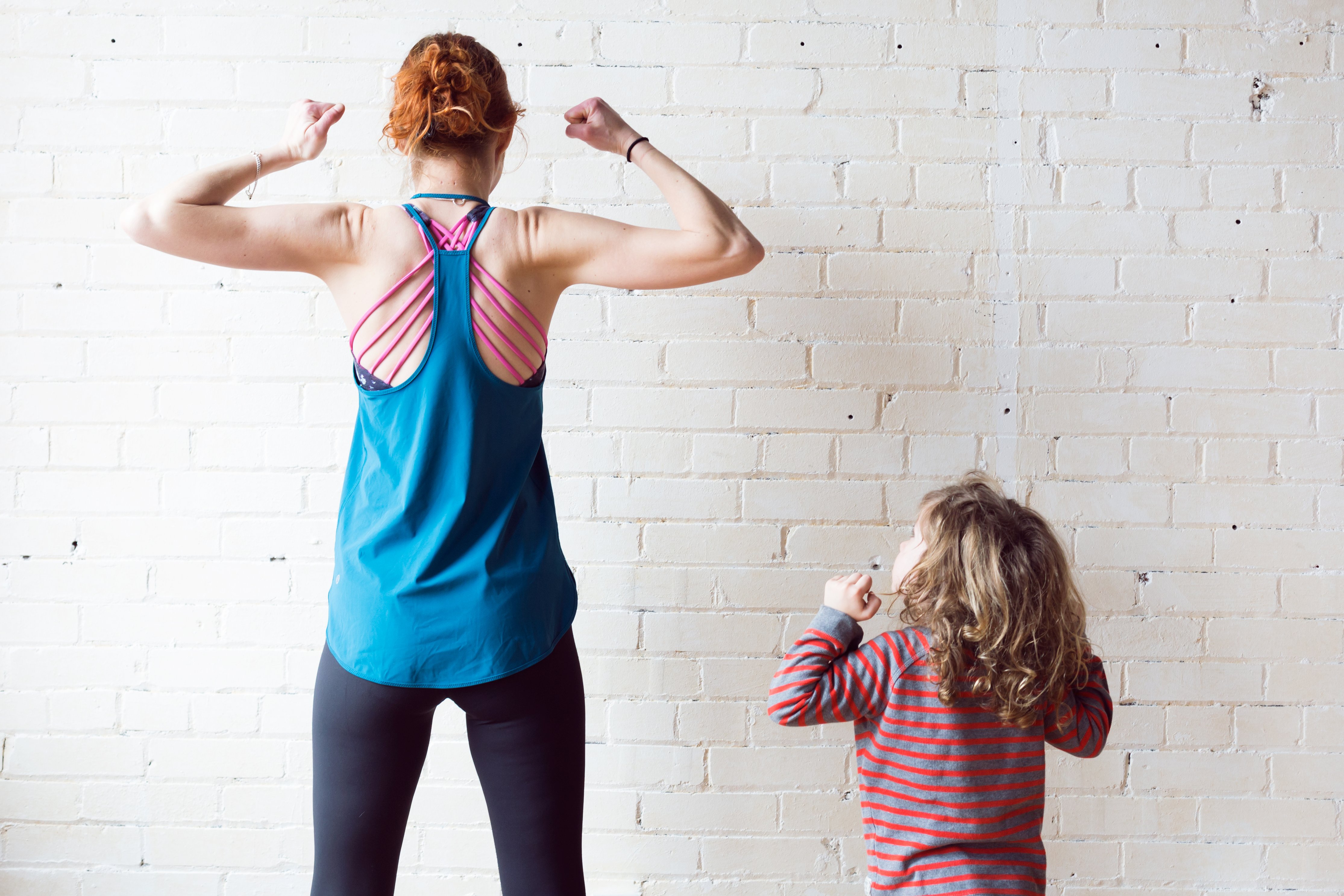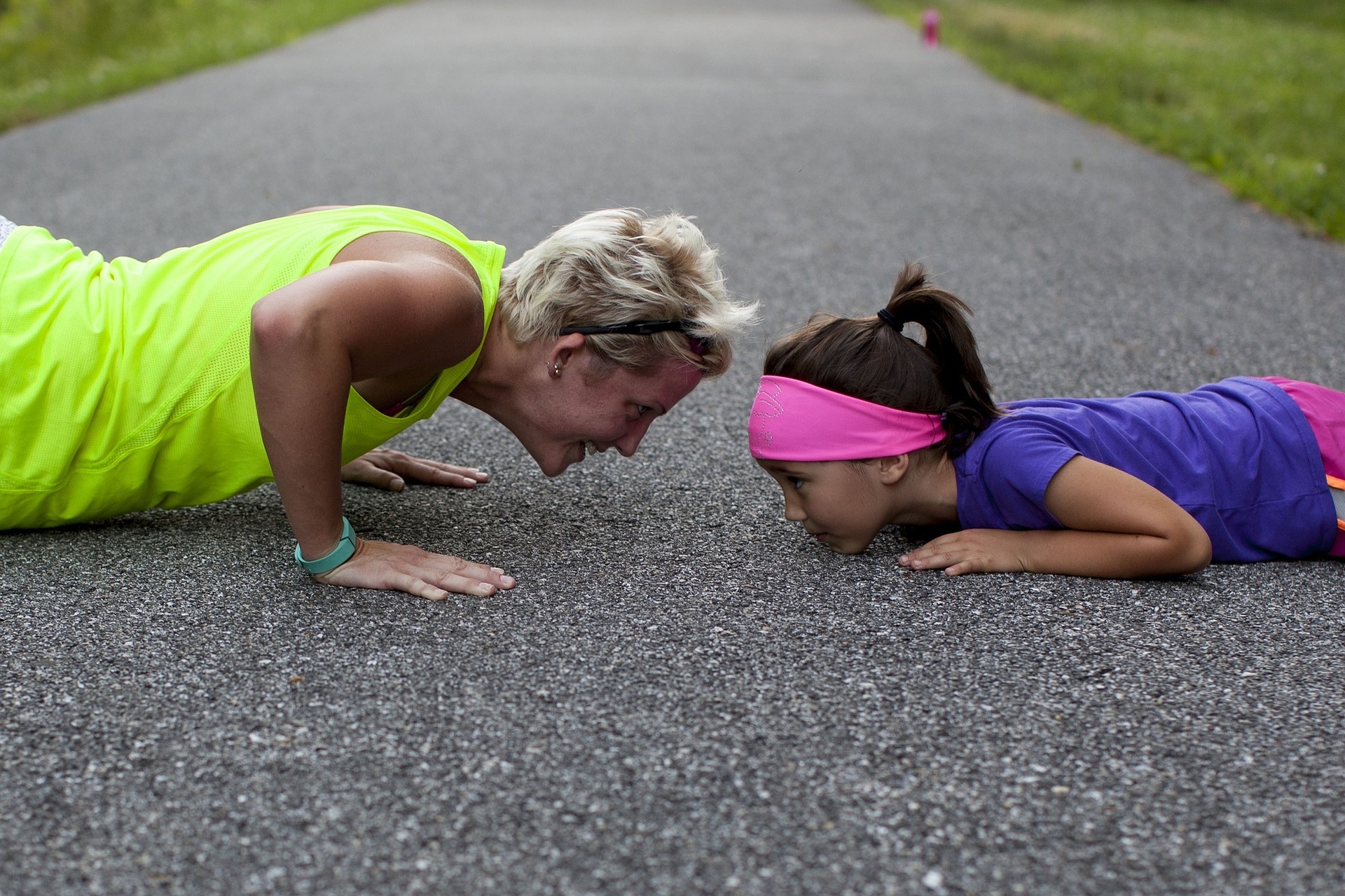The Overwhelming Benefits of Exercise for Kids
To say that it is important for kids to exercise is an understatement… it’s not important, it’s critical! Their health and development depend on it.
In 2011-12 a government Health Survey found that only 10% to 30% of children aged 5-17 met the recommended guidelines for physical activity. The first step in getting our kids the exercise they need is to know how much is enough. The Australian physical activity and sedentary behaviour guidelines outline the exercise and activity we need to be healthy from birth through to old age.
So, what are the guidelines for kids? How much movement is enough?
For children aged 3-5;
- A minimum of 180 minutes of physical activity per day is advised, and this should include 60 minutes of energetic play (running, jumping etc.).
- They should not sit for extended periods or be restrained for more than 1 hour at a time (car seat s, strollers etc.).
- Screen time should be limited to no more than 1 hour per day.
- Finally, children in this age group should enjoy 10 to 13 hours of quality sleep per day, with reasonably consistent times for going down and getting up.
Research found that daily TV is generally associated with poorer reading skills and increased attention problems for each additional hour of TV watched by children under 3 years of age. Current evidence also indicates that TV before the age of 2 may be associated with delayed language development, potentially increasing the risk of language delays as much as six fold.
It’s really important that we understand that association is not causation, but we need to heed the message that more than an hour a day is likely to hinder development.



For children aged 5 -17
- A minimum of 60 minutes of moderate to vigorous exercise is advised, as well as several hours of light physical activity.
- It is important that the majority of this exercise is aerobic exercise.
- At least 3 days per week should include exercises that strengthen children’s muscles and bones.
- Sedentary recreational screen time should be limited to 2 hours per day.
- Any long periods of sedentary behaviour should be broken up with bouts of physical activity.
- Children should be encouraged to participate in positive social interactions and experiences when they are engaging in screen time.
So, what about sleep?
Children aged 5-13 should get 9-11 hours of uninterrupted sleep per night. Teenagers aged 14-17 should enjoy 8-10 hours.
Routine is equally as important for big kids and sleeping and waking times should remain fairly constant, with no more than about 30 minutes fluctuation. It’s commonly recommended that children and teenagers avoid screen time for at least an hour before bed.
Let’s talk more about screen time…
The same National Health Survey found that more than 2/3 of children aged 5-17 failed to meet the recommended guidelines for screen-based activities, with as many as 75% of 15-17 year olds spending an additional 2 hours per day. Furthermore only 7% of these 15-17 year olds were achieving 12,000 steps per day.
Why does exercise matter so much?
In 2017-18, 25% of Australian kids aged 2-17 were overweight or obese. Excess weight and obesity dramatically increases a child’s risk of developing diabetes, cardiovascular disease and some cancers. Exercise helps limit weight gain and independently reduces the risk of some cancers.
Furthermore, 25% of children suffer mental illnesses including anxiety and depression. Children with ADHD, Autism, learning and/or intellectual disability are 20-40% more likely to experience a mental illness. Exercise has been shown to be effective at both preventing the development of mental illness as well as improving management and symptoms of mental illness if it does develop.
Exercise also increases the flow of blood to the brain, and blood delivers the oxygen and glucose the brain needs for attention, problem solving and mental focus. Simply put, exercise makes it easier for children to learn – A Columbia University lab demonstrated this in a 2007 study that showed a 3 month exercise program induced a 30% increase in blood flow to parts of the brain responsible for memory and learning.
What sort of exercise is best?
Well to start with – there is no such thing as bad exercise. Aerobic exercise is critical but the bottom line is that kids will regularly engage with activity they enjoy, so resistance training is definitely an option also.
Kids and teens who already participate in organised sports and activities such as basketball, football, or gymnastics can usually start strength training safely. The myth that kids shouldn’t lift weights or do resistance training has been well and truly debunked. Kids as young as 7 or 8 can safely do strength training if they have good balance and control of their body, follow instructions, and can do the exercises with reasonable form. But it’s important to understand that a child’s strength-training program shouldn’t just be a scaled-down version of an adult’s weight training program. Kids who strength train need to be coached in proper technique and safe progression. Trainers who work in gyms, know about strength training but look for someone who has experience working with kids and teens.
The idea that weight training will stunt kid’s growth really is a myth – it is not supported by any scientific evidence or research. What is supported by scientific evidence and research is that properly designed and supervised resistance training programs have numerous benefits for kids, including:
- Increasing strength and bone strength index (BSI)
- Decreasing fracture risk and rates of sports-related injury
- Growing self-esteem and interest in fitness
- Improving mental health
- Promoting good gut health
Here at Melbourne Osteohealth, we have a dedicated small group exercise class designed specifically for kids, it’s called ‘Developmental Moves’. This class is run by Accredited Exercise Physiologist Marissa Hoey who has much experience and expertise in exercise to promote the health and development of kids.
Click on the button below to book your child in for an Initial Consultation with Marissa or call us on 8370 3044 to learn more about our classes for kids.



